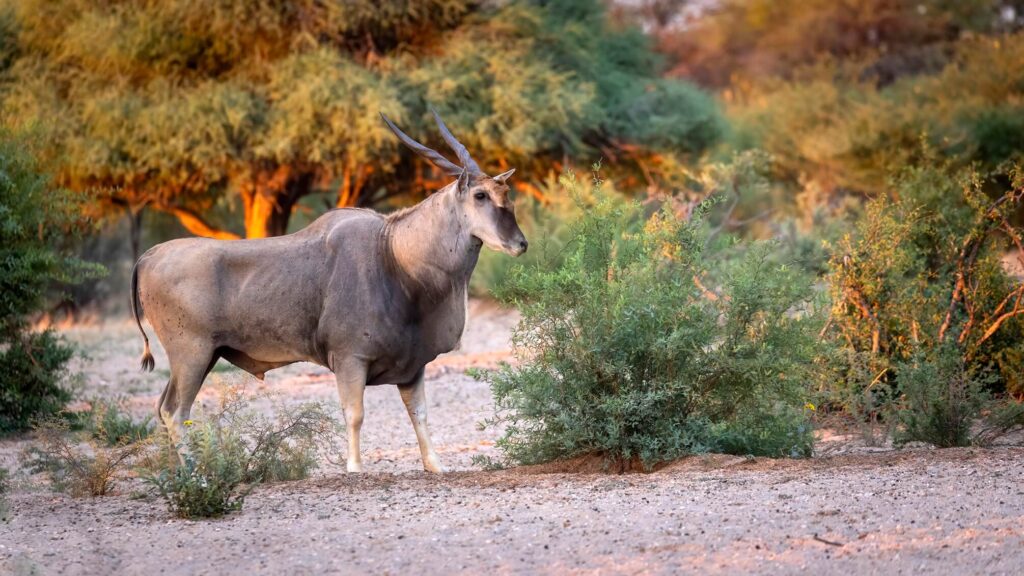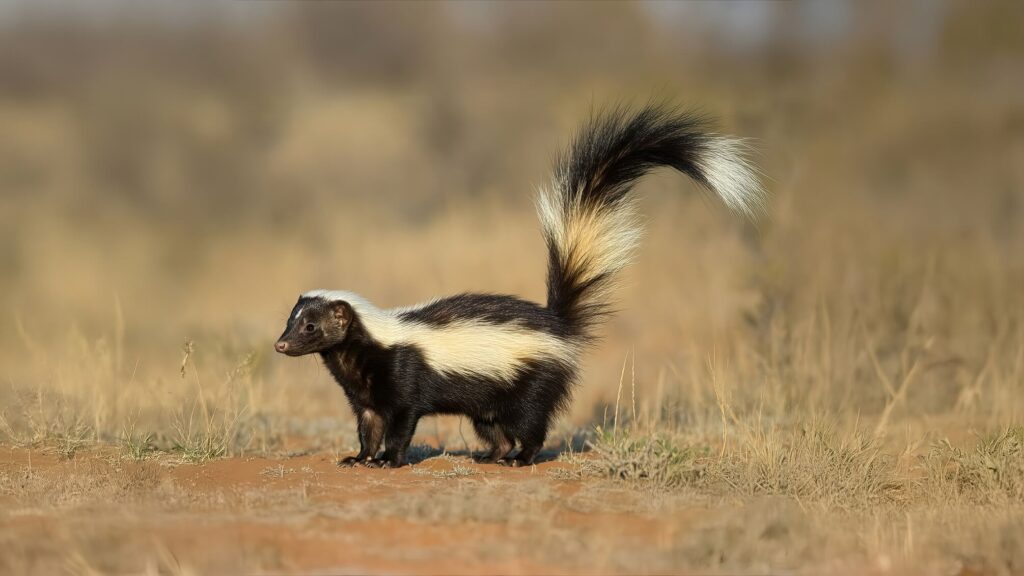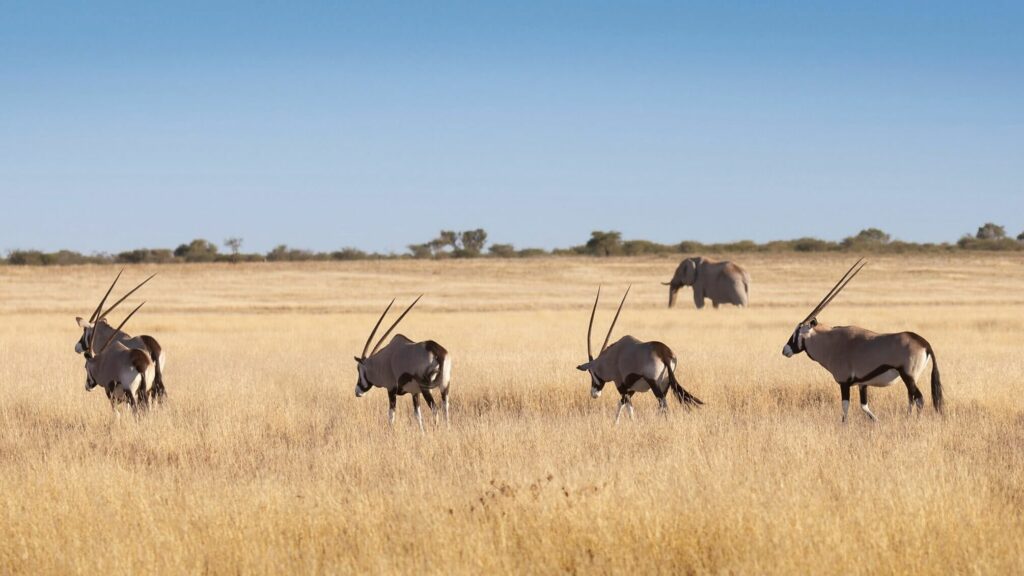Our Mission, Vision, Objectives, and Strategic Plan
Our Vision
“Preserve biodiversity in Africa by connecting ordinary citizens with hands-on conservation initiatives through tourism, education, advocacy, and research.”
Our Mission
To preserve African biodiversity by developing a sustainable model which prioritizes biodiversity conservation and sustainable development, driven by responsible tourism practices and strategic grants, that converts individuals into advocates through active engagement in hands-on conservation initiatives, thus securing the future of Africa’s precious habitats and fostering a harmonious coexistence between wildlife, local communities, and tourists for future generations to come.
Objectives
- Promote biodiversity preservation in Africa.
- Connect ordinary citizens with hands-on Conservation Initiatives.
- Develop and support tourism initiatives that contribute to biodiversity preservation.
- Provide educational programs to raise awareness about conservation and biodiversity.
- Advocate for policies and practices that protect wildlife and their habitats.
- Conduct research to advance scientific knowledge and conservation efforts.
- Foster collaborations with local communities, organizations, and stakeholders for effective conservation.
- Measure and monitor the impact of conservation initiatives on biodiversity.
- Enhance public engagement and participation in conservation activities.
- Secure funding and resources to sustain conservation projects and initiatives.
Strategic Plan
Conservation Initiatives
- Identify key conservation priorities and develop action plans for targeted preservation efforts.
- Establish and manage protected areas or Conservation Reserves to safeguard critical habitats and species.
- Implement habitat restoration projects to enhance biodiversity and ecosystem resilience.
Community Engagement
- Foster partnerships with local communities, ensuring their active involvement and participation in conservation initiatives.
- Organize community-based conservation programs, promoting sustainable livelihoods and natural resource management.
- Provide training and capacity-building opportunities to empower local communities in conservation practices.
Tourism and Sustainability
- Develop Responsible Tourism practices that prioritize environmental sustainability and promote wildlife conservation.
- Offer nature-based tourism experiences that create awareness and Generate Funds for conservation projects.
- Collaborate with local tourism operators to develop eco-friendly initiatives and promote conservation-minded tourism.
Education and Awareness
- Design and implement educational programs targeting diverse audiences, including schools, communities, and tourists.
- Raise awareness about the importance of biodiversity, ecosystems, and conservation through workshops, events, and campaigns.
- Develop educational materials and resources to facilitate learning and understanding of conservation issues.
Advocacy and Policy
- Advocate for the implementation and enforcement of policies that protect wildlife and their habitats.
- Engage with government bodies, NGOs, and other stakeholders to influence conservation policies and legislation.
- Raise public awareness about conservation issues through advocacy campaigns and public outreach initiatives.
Research and Innovation
- Conduct scientific research to enhance understanding of biodiversity, ecological systems, and conservation challenges. (See our Predator Monitoring, Pangolin Monitoring, African Wild Dog Monitoring, Cheetah Monitoring, and Lion Monitoring pages)
- Collaborate with research institutions and experts to promote innovative approaches to conservation.
- Apply research findings to inform conservation strategies and improve the effectiveness of initiatives.
Collaboration and Partnerships
- Establish collaborations and partnerships with local communities, organizations, and stakeholders involved in conservation efforts.
- Engage in knowledge-sharing and collaboration with other conservation organizations to leverage resources and expertise.
- Foster cooperation with governmental agencies, NGOs, and international organizations to achieve shared conservation goals.
Impact Monitoring and Evaluation
- Develop a comprehensive monitoring and evaluation framework to assess the impact of conservation initiatives.
- Regularly measure and monitor biodiversity indicators to evaluate the effectiveness of conservation efforts.
- Adapt strategies based on monitoring results and feedback to improve conservation outcomes.
Funding and Resource Mobilization
- Develop a diversified funding strategy, including Tourism, grants, partnerships, donations, and other sustainable revenue streams.
- Cultivate relationships with travel agencies, potential donors, philanthropic organizations, and corporate sponsors to secure financial support.
- Seek opportunities for grant funding and engage in fundraising activities to sustain conservation projects.
Implementation and Evaluation
- Develop a detailed action plan outlining specific activities, responsibilities, and timelines for each strategy.
- Allocate resources effectively to ensure the successful implementation of conservation initiatives.
- Continuously monitor progress, evaluate the effectiveness of each strategy, and make necessary adjustments as needed.
- Maintain regular communication and collaboration with stakeholders, partners, and local communities.
- Establish key performance indicators (KPIs) to measure the impact of conservation initiatives and track progress towards our mission.
- Conduct regular evaluations to assess the overall success of our mission and the strategic plan and identify areas for improvement.
- Foster a culture of learning and adaptability within the organization, embracing feedback and incorporating lessons learned into future initiatives.
Communication and Outreach
- Develop a comprehensive communication strategy to effectively communicate our mission, objectives, and conservation achievements.
- Utilize various communication channels such as social media, website, newsletters, and public events to engage and inform the public regarding our mission.
- Collaborate with media outlets and influencers to raise public awareness about conservation issues and the organization’s work.
- Establish partnerships with educational institutions, community groups, and other organizations to expand outreach efforts and engage a wider audience.
Capacity Building and Training
- Provide training and capacity-building opportunities for staff, volunteers, and local communities involved in conservation initiatives.
- Foster skill development in areas such as research techniques, community engagement, project management, and sustainable tourism practices.
- Facilitate knowledge exchange and learning through workshops, mentorship programs, and partnerships with academic institutions and experts in the field.
Collaboration with Indigenous Communities
- Recognize and respect the rights and traditional knowledge of indigenous communities in conservation efforts.
- Collaborate with indigenous communities to integrate their cultural practices and traditional ecological knowledge into conservation initiatives.
- Empower indigenous communities to participate in decision-making processes and benefit equitably from conservation efforts.
Long-term Sustainability
- Develop a long-term sustainability plan to ensure the continuity and impact of conservation projects beyond the initial phases is key to our mission.
- Diversify funding sources and explore innovative financing mechanisms to support ongoing operations and future initiatives.
- Strengthen partnerships and collaborations to leverage resources, expertise, and knowledge for sustained conservation efforts.
- Continuously assess and adapt strategies to address emerging challenges and changing environmental conditions.
Through effective implementation, this strategic plan will help achieve our mission of preserving biodiversity in Africa and connecting ordinary citizens with hands-on conservation initiatives. Through the abovementioned strategic plan, we can achieve our mission and make a significant impact in biodiversity conservation, education, advocacy, research, and community engagement, thereby ensuring a sustainable future for wildlife and ecosystems in Africa.

Our Project let’s you join a Kalahari Safari to help African Wildlife or Contact Us for any other questions or read our Testimonials!


